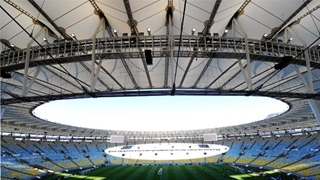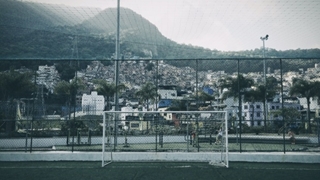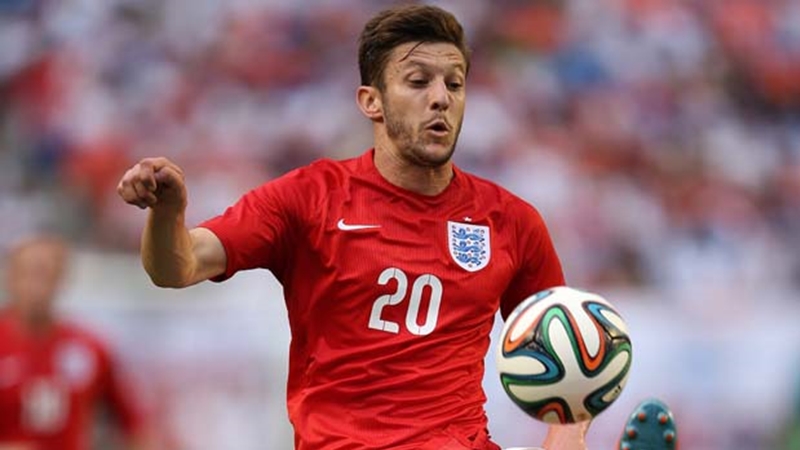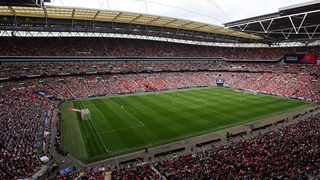
One of the most eagerly anticipated World Cups in decades is finally upon us - and taking place in a country where football runs through the blood.
From the golden beaches of Copacabana and Ipanema of Rio de Janeiro, to the Amazon rainforest city of Manaus or cooler climates of the south and Porto Alegre - the 2014 World Cup promises to be the most diverse, colourful and exciting for generations.
This is your guide to the 12 host cities where the competition will take place...
Estadio do Maracana, Rio de Janeiro
Maracana, officially called Estadio Mario Filho is scheduled to host a total of seven matches, including one quarter-final and the final. It also hosted the final of the 2013 Confederations Cup. The stadium was officially renamed in 1966 following the death of Brazilian journalist Mario Filho.
In July 1950 an official attendance of 199,854 (estimated to be closer to 210,000) watched Brazil's 2-1 defeat against Uruguay in the World Cup - to this day it remains a world record attendance for a football match.
Clubs: CR Flamengo and Fluminense FC
Opened: 1950
Capacity: 78,838
Fixtures
Group F: Argentina v Bosnia-Herzegovina – 15 June
Group B: Spain v Chile – 18 June
Group H: Belgium v Russia – 22 June
Group E: Ecuador v France – 25 June
Second Round: Winner of Group C v Runner-up of Group D – 28 June
Quarter-final: Winner Second-round 5 v Winner Second-round 6 – 4 July
World Cup Final: Winner semi-final 1 v Winner semi-final 2 – 13 July
Arena de Sao Paulo
Club: SC Corinthians Paulista
Opened: 2014
Capacity: 68,000
Fixtures
Group A: Brazil v Croatia – 12 June
Group D: Uruguay v England – 19 June
Group B: Netherlands v Chile – 23 June
Group H: Korea Republic v Belgium – 26 June
Second Round: Winner Group F v Runner-up Group E – 1 July
Semi-final: Winner Quarter-final 3 v Winner Quarter-final 4 – 9 July
The stadium normally has a 48,000 capacity but has been increased by 20,000 for the World Cup. The Arena de Sao Paulo will host the opening match between Brazil and Croatia. The arena will become the new home of SC Corinthians after the finals.
Estadio Mineirao, Belo Horizonte
Clubs: Cruzeiro EC
Opened: 1965
Capacity: 64,000
Fixtures
Group C: Colombia v Greece – 14 June
Group H: Belgium v Algeria – 17 June
Group F: Argentina v Iran – 21 June
Group D: Costa Rica v England – 24 June
Second Round: Winner Group A v Runner-up Group B – 28 June
Semi-final: Winner Quarter-final 1 v Winner Quarter-final 2 – 8 July
When Brazil won their bid to host the 2014 World Cup, it was clear that Mineirao needed to undergo a large redevelopment. The project included the complete reconstruction of the bottom tier and extension of the roof. The first match at the reopened Mineirao was played in February last year with a friendly derby between Atletico and Cruzeiro.
Estadio Nacional de Brasilia
Club: None
Opened: 2013
Capacity: 71,412
Fixtures
Group E: Switzerland v Ecuador – 15 June
Group C: Colombia v Ivory Coast -19 June
Group A: Cameroon v Brazil – 23 June
Group G: Portugal v Ghana – 26 June
Second-Round: Winner Group E v Runner-up Group F – 30 June
Quarter-final: Winner Second-round 7 v Winner Second-round 8 – 05 July
Third-place match: Loser semi-final 1 v Loser semi-final 2 – 12 July
Estadio Nacional de Brasilia officially opened in May last year with a friendly between capital city sides Brasilia and Brasiliense. None of the local clubs have committed to making the large stadium their permanent home, but they are expected to occasionally use it for high-profile matches.
Arena Castelao, Fortaleza
Clubs: Ceara SC and Fortaleza EC
Opening: 1973
Capacity: 63,903 seats
Fixtures
Group D: Uruguay v Costa Rica – 14 June
Group A: Brazil v Mexico – 17 June
Group G: Germany v Ghana – 21 June
Group C- Greece v Ivory Coast – 24 June
Second-round: Winner Group B v Runner-up Group A – 29 June
Quarter-final: Winner Second-round 1 v Winner Second-round 2 – 4 July
Castelao was selected as one of the playing venues of the 2014 World Cup and therefore required a more substantial redevelopment. Works started early 2011 and involved the demolition and reconstruction of the bottom tier, the installation of a new roof, and the refurbishment of the rest of the stadium.
Arena Fonte Nova, Salvador
Clubs: EC Bahia
Opened: 2013
Capacity: 53,700
Fixtures
Group B: Spain v Netherlands – 14 June
Group G: Germany v Portugal – 16 June
Group E: Switzerland v France – 20 June
Group F: Bosnia-Herzegovina v Iran – 25 June
Second-round: Winner Group H v Runner-up Group E – 1 July
Quarter-final: Winner Second-round 3 v Winner Second-round 4 – 5 July
Estadio Fonte Nova was demolished in 2010 and construction of the new stadium took about two-and-a-half years. It got completed in early 2013 and officially opened on the 5 April last year.
Estadio Beira-Rio, Porto Alegre
Club: SC Internacional
Opened: 1969
Capacity: 47,100
Fixtures
Group E: France v Honduras -15 June
Group B: Australia v Netherlands – 18 June
Group H: Korea Republic v Algeria – 22 June
Group F: Nigeria v Argentina – 25 June
Second-round: Winner Group G v Runner-up Group H – 30 June
In 1956, the city of Porto Alegre donated Internacional a site in the river Guaíba, which it first had to drain before they could start construction. Building works started in 1959, but due to a lack of finances Internacional heavily relied on fans contributing the bricks, cement, and iron works. As a result, works progressed very slowly and it took a decade for construction to complete.
Arena Pernambuco, Recife
Club: Clube Nautico Capibaribe
Opened: 2013
Capacity: 46,000
Fixtures
Group C: Ivory Coast v Japan – 15 June
Group D: Italy v Costa Rica – 20 June
Group A: Croatia v Mexico – 23 June
Group G: USA v Germany – 26 June
Second-round: Winner Group D v Runner-up Group C – 29 June
The Arena Pernambuco officially opened in May last year with a friendly between Nautico and Portuguese side Sporting Lisbon. Itaipava Arena Pernambuco is scheduled to host five matches at the 2014 World Cup, including one of the round of 16 matches.
Arena da Amazonia, Manaus
Club: None
Opened: 2014
Capacity: 44,000
Fixtures
Group D: England v Italy – 14 June
Group A: Cameroon v Croatia – 18 June
Group G: USA v Portugal – 22 June
Group E: Honduras v Switzerland – 25 June
The shape of the stadium is meant to resemble a traditional Brazilian basket and takes into account the area’s challenging climatic conditions. The roof’s steel structure is designed to serve as a large gutter that drains the tropical rain water, the roof’s coating reflects heat and there are areas of shade where spectators can shelter from the sun.
Arena Pantanal, Cuiaba
Club: Mixto EC and Cuiaba EC
Opened: 2014
Capacity: 28,000 (World Cup: 43,000)
Fixtures
Group B: Chile v Australia – 13 June
Group H: Russia v Korea Republic – 17 June
Group F: Nigeria v Bosnia-Herzegovina – 21 June
Group C: Japan v Colombia – 24 June
The Arena Pantanal will have a capacity of 43,000 seats for the World Cup, but about 15,000 seats will be removed after the tournament. This will be achieved by dismantling the upper parts of both ends.
Arena das Dunas, Natal
Club: America Futebol Clube
Opened: 2014
Capacity: 33,000 (World Cup: 43,000)
Fixtures
Group A: Mexico v Cameroon – 13 June
Group G: Ghana v USA – 16 June
Group C: Japan v Greece – 19 June
Group D: Italy v Uruguay - 24 June
The design of the stadium by architecture firm Populous is inspired by Natal’s famous sand dunes. Its most characteristic features are the upper tier and roof in the shape of petals. The space between the petals allows the on-shore sea breezes to flow into the stadium while the roof shields the spectators from the often intense sunlight.
Arena da Baixada, Curitiba
Club: Clube Atletico Paranaense
Opened: 1999
Capacity: 41,456
Fixtures
Group F: Iran v Nigeria – 16 June
Group E: Honduras v Ecuador – 20 June
Group B: Australia v Spain – 23 June
Group H: Algeria v Russia – 26 June
The Arena da Baixada, also referred to as Arena CAP, was built in the late 1990s in the place of Atletico’s old Estadio Joaquim Americo Guimaraes. It opened in June 1999 and was considered one of the most modern stadiums in Latin America at the time.




















